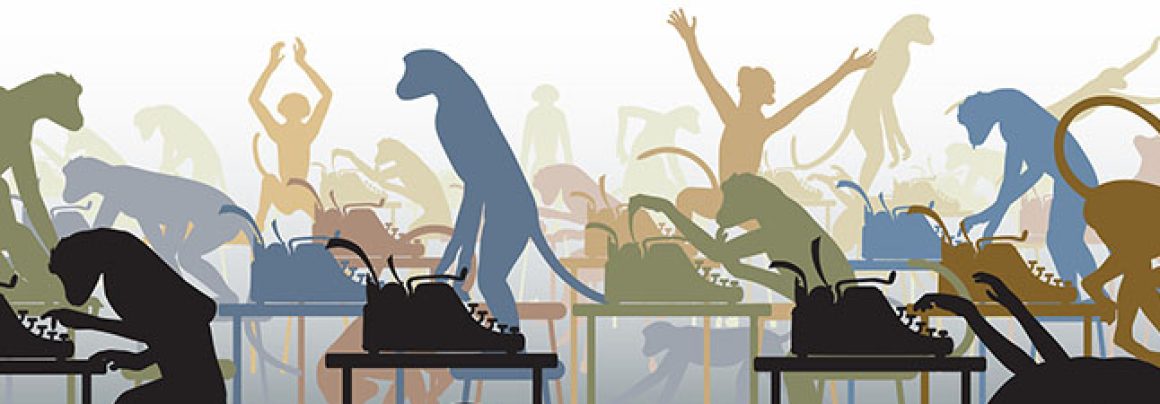NEW ORLEANS, La. For Armand St. Stephen, a recent graduate of Tulane University, Barack Obama’s inaugural call to public service was both an inspiration and a revelation. “I got misty-eyed when he talked about showing kindness to strangers when the levee breaks,” he says. “The only time you hear the rest of the country talking about our levees is when there’s a hurricane or somebody gets drunk and puts on Don McLean’s ‘American Pie’.”
McLean: On the surface, he is very deep.
So St. Stephen, who earned his degree in creative writing, called up the Army Corps of Engineers, the government agency responsible for restoring the levees of New Orleans in the wake of Hurricane Katrina, and suggested a new and unlikely source of raw material: unpublished manuscripts by writers across America.
“When you mix a 400-page coming-of-age novel with a little flour, water and glue, you get a substance that makes a pretty darn good flood prevention device,” said Chief Engineer Warren Lamont. “Of course it looks like an elementary school science project, such as ‘How A Volcano Works’ or ‘When Dinosaurs Walked the Earth’, but we’re not in the landscape gardening business here.”
Federal Writers Project workers pretending to work
The idea of linking unpublished writers with reconstruction efforts has a Keynesian “multiplier” effect, according to David Simon, an economist at the University of Massachusetts-Seekonk. “There were a lot of has-been rock musicians who muscled their way into the inauguration, but writers had no way to contribute,” he said. “If we can get them to crank out a Southern Gothic short story collection at prevailing wages, then use it to fuel a waste-to-energy plant, we will ease unemployment and cut our dependence on foreign oil at the same time.”
Faulkner: “Thanks to my Nobel Prize winnings, I can afford to maintain my savage tan.”
St. Stephen is currently working on a three-volume family saga in the manner of William Faulkner’s Yoknapatawpha County novels. “It’s a stream of consciousness novel told through the voice of Darrell Suggins, the feeble-minded product of inbreeding between the offspring of a morganatic marriage between a scion of the old Southern dynasty and a syphilitic prostitute from Storyville,” the red-light district of New Orleans, he says. St. Stephens provided this reporter with a sample dependent clause from a sentence of his work-in-progress:
Yoo-Hoo Chocolate Soda Family Pack
. . . and it was not the knowingness or the beingness between the two who were the issue or the effluvium of their polar opposite forebears who yet shared the sameness and the oneness of the South yes the South with its crape myrtle and Yoo-Hoo Chocolate Soda and lightning bugs even though the drinking fountain yes the drinking fountain at Sonny Tufts Park in Atlanta had been shared yes shared by them illicitly and implictly even though serially and even though one was white and one black.
St. Stephen has been unable to find a publisher and will ship his manuscript in three semi-trailer trucks to a processing plant in Metarie, where it will be mixed with uneaten fish sticks from the cafeteria at Professor Longhair Junior High School to give it more substance.
Professor Longhair
Other writers with specialized literary talents are excited about the program, and eager to participate. Dorothy Danville, a writer of romantic novels disparagingly referred to as “bodice rippers” in the industry, has donated a 500-page draft of “Love’s Conquering Climax” to the cause, after trying for several years to sell it to Harlequin Books. “Ms. Danville’s works are very viscous, if I may use a fifty-cent word,” said Dick Martin, Director of Public Works for New Orleans. “People are using them for caulking, tuckpointing brick structures and roof tar.”
Con Chapman, a Midwestern transplant to Boston and a fan of New Orleans music, says he feels a sense of personal responsibility for the flooding that hit the Crescent City. “If I had showered more frequently in high school,” he notes, “maybe Katrina wouldn’t have been so bad.”
Ray Nagin, Mayor of New Orleans, said he had read some of Chapman’s material but had not yet agreed to accept it. “It’s ‘dry humor’, which I guess is how you say ‘not funny’ up in Boston,” he said. “The water department ran a few tests on it, and it is pretty absorbent,” he noted. “I personally prefer Bounty, the Quicker-Picker-Upper.”
On their way!
Chapman said he would send a container-load of material from the Massport Marine Terminal in South Boston as soon as a ship large enough to carry it arrived in port. “And that,” he noted proudly, “is just my rejection letters.”









